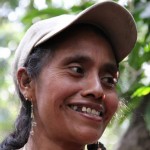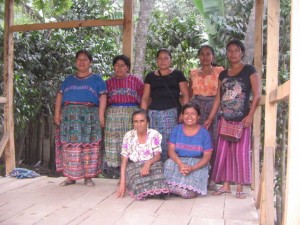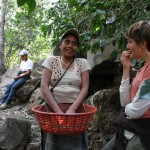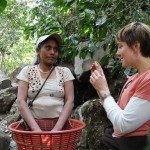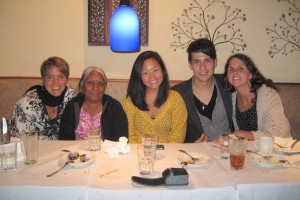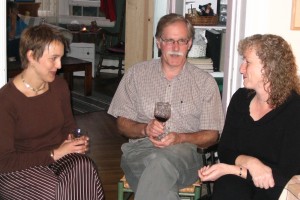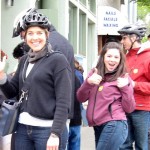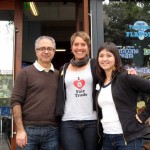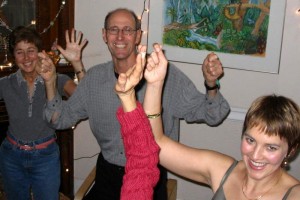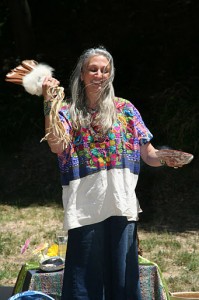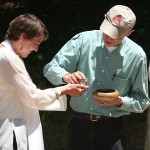I don’t know Who — or what — put the question, I don’t know when it was put. I don’t even remember answering. But at some moment I did answer Yes to Someone — or Something — and from that hour I was certain that existence is meaningful and that, therefore, my life, in self-surrender, had a goal.
-Dag Hammarskjöld
Paradoxically, we achieve true wholeness only by embracing our fragility and sometimes, our brokenness. Wholeness is a natural radiance of Love, and Love demands that we allow the destruction of our old self for the sake of the new.
– Jalaja Bonheimm, Aphrodite‘s Daughters
Do not be daunted by the enormity of the world’s grief. Do justly, now. Love mercy, now. Walk humbly, now. You are not obligated to complete the work, but neither are you free to abandon it.
– The Talmud
Back in 2007, when “Going Green” was going, I worked for a sustainability firm whose task was to educate and support the masses employed by multi-national corporations, to make changes that would bring personal sustainability into their lives. Beginning with a daylong workshop, I would meet with phenomenal individuals, you know the ones: gifted and smart, parents or just-out-of-college, PhDs or GEDS, believers and atheists, conservatives and liberals. Yep, those people! You and me. And I had eye-opening privilege of meeting with them across the country, however the majority of my time was spent in Texas. And inTexas, things were extra interesting.
Early on, a client asked us to remove one of the “eco-facts,” we used in our training to help illustrate the demands our current lifestyle choices put on natural resources, in this case, water. The eco-fact was about the number of gallons of water used to make a hamburger. Wanna guess?
Six hundred. 600 gallons. But wait! Before you totally freak-out, before your righteous button gets tripped and you’re saying, “Duh! That’s why I’m a vegetarian,” or you run to the Ranchers’ defense with, “What sort of math were you using? What about grass-fed beef? Or what about switching to buffalo?” I’d like to jump-in and share that I’m not here to defend the eco-fact one way or the other….at least not completely. Respectfully acknowledging the complexities of making a living in Texas, and admitting to the enormity of defining eco-calculations, the eco-fact was removed. And, in my thinking, a big uncomfortable, important opportunity was missed.
My current work no longer has me on the sustainability frontlines, and while I’m the first to admit to the creative work-arounds I employ to justify a non-sustainable indulgence or two, I will also say that the sustainability efforts exercised by most North Americans right now do not bode well for our future. We continue to make really checked-out choices. And why is that? It’s not for lack of information. Or even a lack of support; heck, here are resources and rebates, support groups and incentives of every sort encouraging us to make changes for – you name it – a physically healthier, financially solvent, addiction-freed, more balanced way of living.
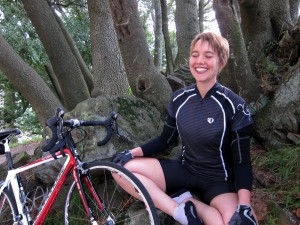
Fancy Me Balanced!
But here’s the thing – and we all know this – choosing to make a change, really saying, “Yes,” can hurt. It brings up all kinds of fear, guilt, shame, and grief – “I’m envisioning something better, but how do I let go of this thing that’s become sooooo familiar?”
Last week, mindlessly thumbing through a magazine, I stumbled on an info-graphic of…yes! The amount of water in a hamburger, and worse, it also showed the amount of water used to make coffee, wine, cheese and chocolate! Argh! I was reading this magazine trying to take a break! I was digging for some inspiration and now I was hit with this really uncomfortable reminder that perhaps my food choices could benefit from a mindful review. It didn’t feel good.
But wait….that’s ok, isn’t it?
The miracle of this life is that everyday – Every. Single. Day. – we encounter choices. It’s easy to speed by them, right? It’s the, “I’m-busy-or-that’s-too-scary-so-I’ll-do-it-later” stuper. I don’t know about you, but I can get really seduced by my stuper. And then, something happens. It’s a moment when we’re feeling a little more open, or maybe we’re just sick to death of ourselves and this is where the, “Yes,” lives.
You see, I believe, every one of us actually has a desire to live an alive life, one that contributes to something Larger than Me. Saying, “Yes,” taps the courage, the curiosity, the determination to suspend our tendency toward the familiar or conformity or convenience, and something else happens! So, the next time you’re assaulted (or assaulting yourself) with some guilt-ridden, shame-provoking, or inconvenient reality, ask yourself how and where you might say, “Yes.” It’s okay if it hurts a little. See what happens.
No pressure, but if you’re curious, the info-graphic is right here:
http://www.nxtbook.com/nxtbooks/heifer/worldark_201208/#/8


